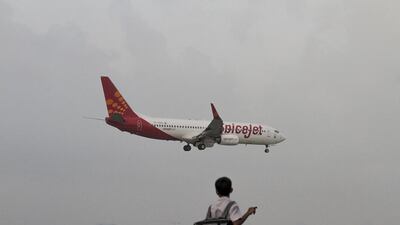‘Sir, your bag was not loaded on the flight. It can come only tomorrow by 11am,” explained the ground attendant at Jaipur airport in 1980. “But I have meetings today. My clothes and papers are in my suitcase,” I beseeched her. She replied nonchalantly: “There is nothing we can do, except wait until tomorrow”.
The episode generated my first lesson in travelling. Since then, I’ve always carried important papers and some clothes in my hand luggage. Checked baggage can get delayed or misplaced, resulting in avoidable trauma.
“If you work, you have to travel,” advised my boss as early as 1948. My work involved travelling across India for about 10 to 12 days every month in a career spanning 40 years to audit the operations of industrial groups.
Over the decades I learnt some basics that make for hassle-free travel. I keep a separate bag of clothes and toiletries for travelling. On my return, these clothes are laundered and put back in the travel bag. Thus, I don’t have to pack from scratch for every trip. The wardrobe has to be bolstered a wee bit, but it is worth it.
I keep a checklist of about 50 items including apparel, toiletries and medicines that I review before every tour.
When you travel you have to be prepared for the unexpected. When you reach your hotel it may not have a room even though it was confirmed. If you land in Nairobi, you may find the city is tense because five lions have escaped from the game park and are roaming the streets. Or you may reach Delhi airport at 4am to learn that your flight has been delayed by six hours due to fog.
When such issues derail the itinerary, it is best to practise the virtue of patience. I always carry books with me.
Travelling provided me with the opportunity to see many historical monuments. Local managers organised excursions over the weekends. I saw the Vivekananda rock at the southern tip of India, where Swamiji found enlightenment. I also visited Bodh Gaya, where Buddha found his path while meditating under a tree. Naturally, I have also visited the marble monument of love, India’s pride, the Taj Mahal.
When visiting these monuments, I reflected on how much additional tourism India could lure by ensuring cleanliness and improving the infrastructure in the surrounding areas. The presence of the Taj in Agra should have galvanised Indians to modernise the town but, lamentably, it is a dusty, languorous place stuck in medieval times.
Travel also widens perspectives through meeting people. The boisterous, fun-loving Punjabis are very different in conduct from the scholarly Brahmins of south India. The Marwaris of Rajasthan, with their commercial acumen, are very different in demeanour and dress from the poetic Bengalis of east India.
Travelling provides us with opportunities to relish a vast range of foods and spices. With 29 states, India offers a range of culinary experiences. Each state has its unique recipes. The dhoklas of Gujarat, the aloo-tikkis of Punjab, the dosas of Tamilnadu, the rasgullas of West Bengal, have their distinct flavours.
When you travel extensively, you learn to respect varying cultures and customs. It is best to accept people as they are and never be judgemental. Often on the 24-hour train journey from Raipur to Mumbai, I have marvelled at the spirit of India that bonds people with a multitude of languages, customs, dances, music and flowers.
After I left behind my geography and history classes in a small school in Lyallpur (now Faisalabad, in Pakistan), my education continued on the streets of more than 100 towns and 300 villages I visited for work.
During my working life, I spent more than 4,000 nights in hotels. I travelled by plane, train, boat, bus, car and sometimes even a horse carriage or a bullock cart. Each journey, however inconvenient, was a learning experience.
As I believe Somerset Maugham once wrote, there is no place in the world that is not worth visiting.
Hari Chand Aneja is a 95-year-old former corporate executive who now keeps busy with charity work

